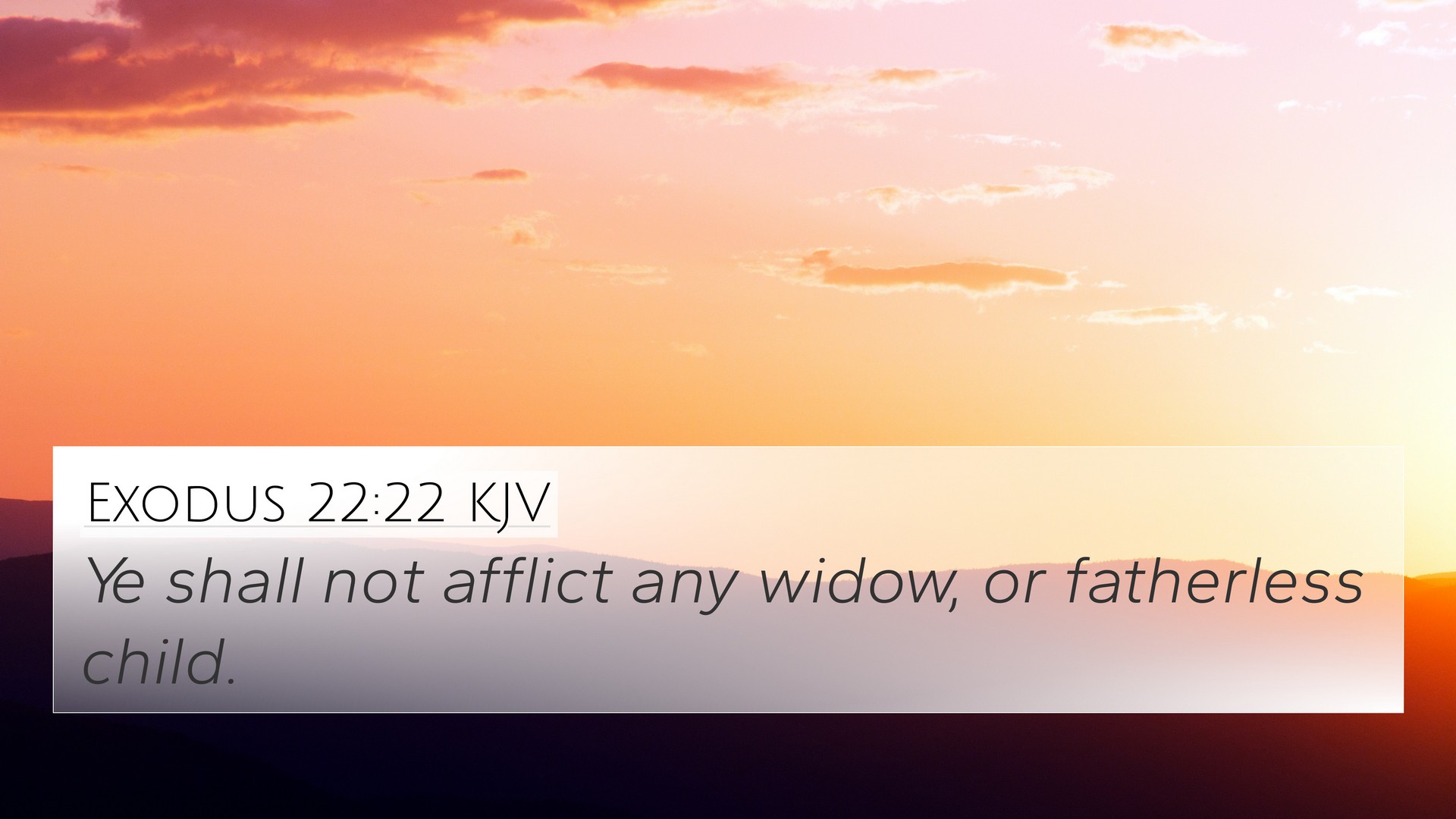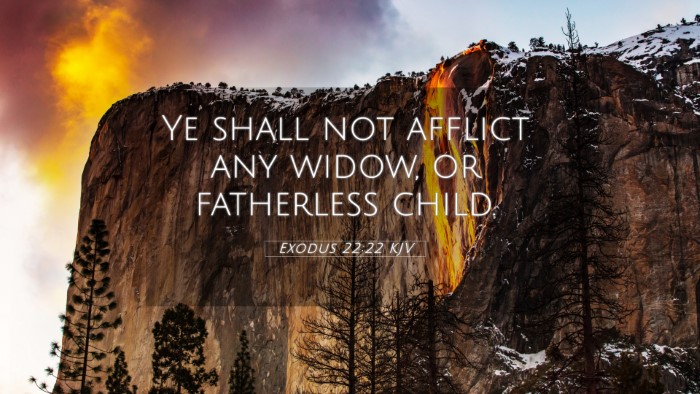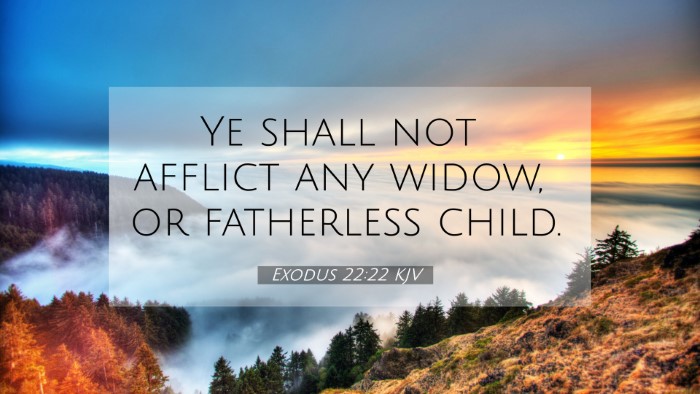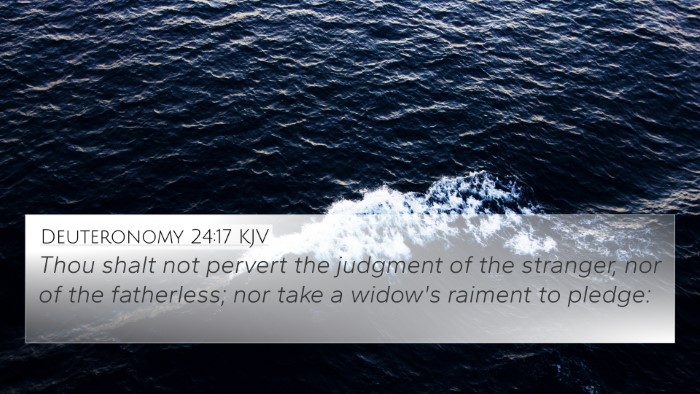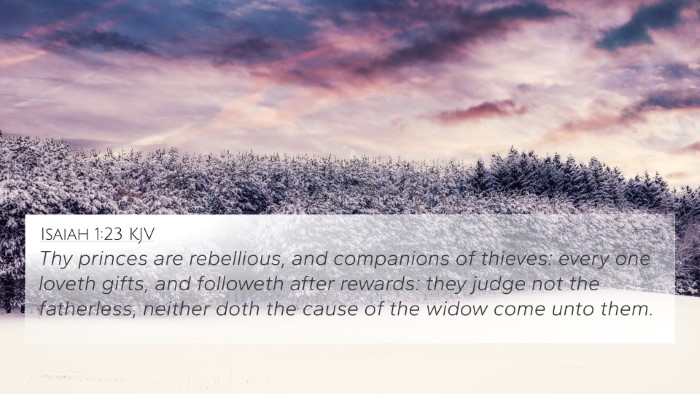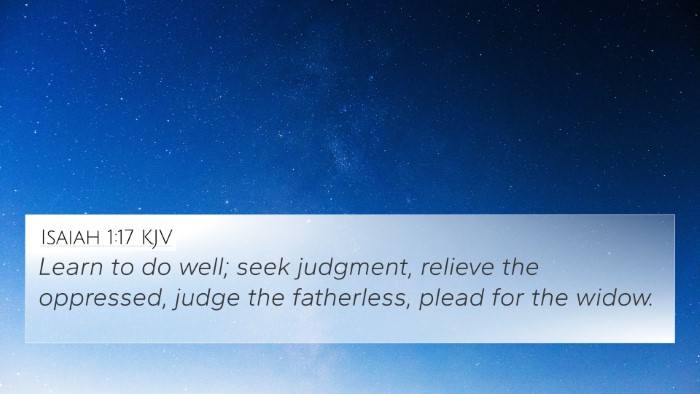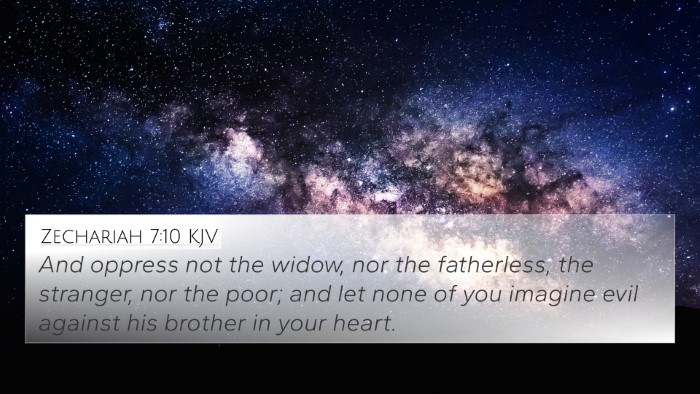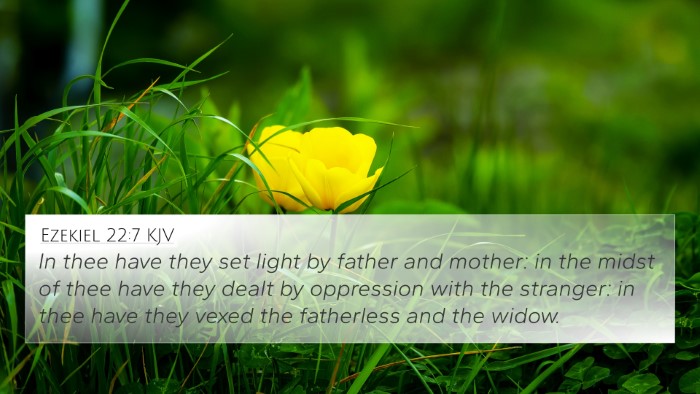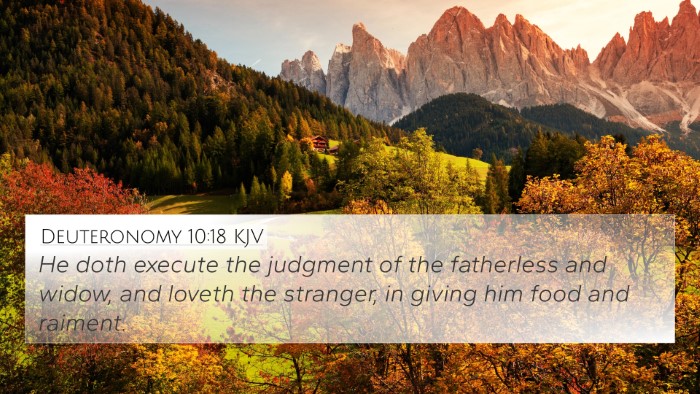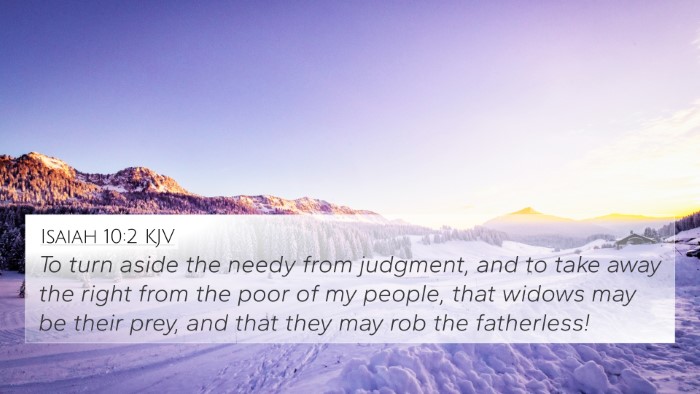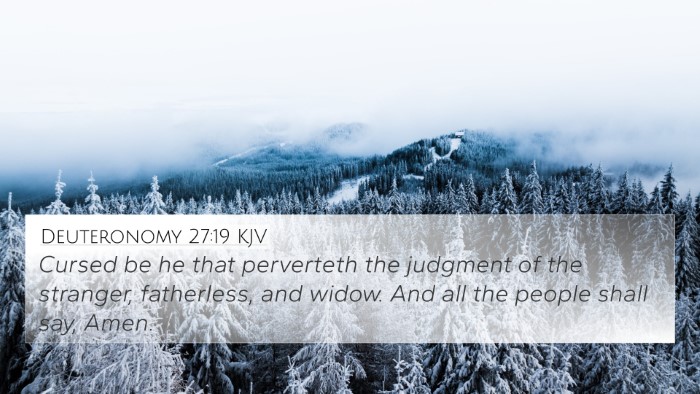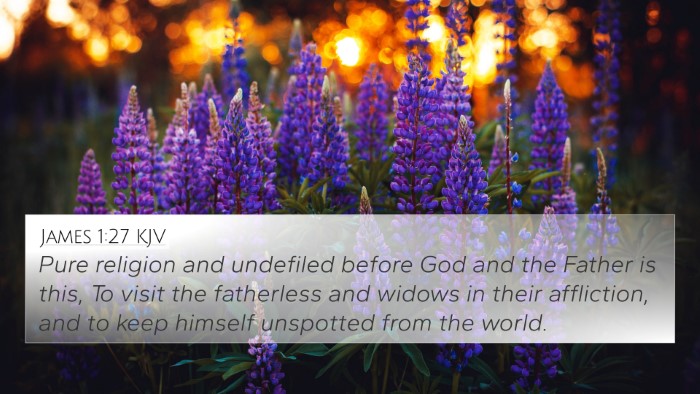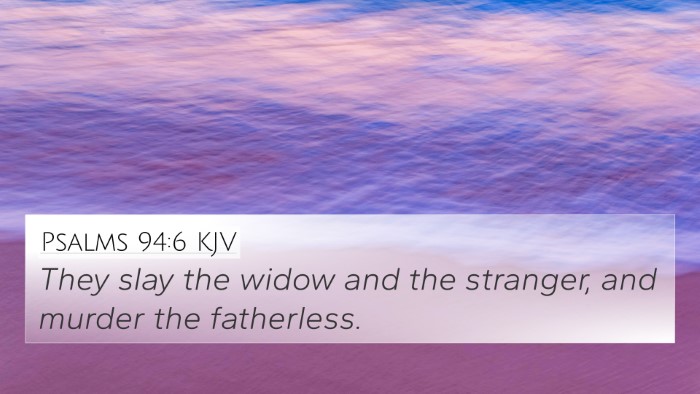Understanding Exodus 22:22
This comprehensive analysis of Exodus 22:22 draws insights from public domain commentaries, including those by Matthew Henry, Albert Barnes, and Adam Clarke. This verse addresses the protection of the vulnerable, emphasizing God's care for the oppressed in society.
Verse Context
Exodus 22:22 reads: "You shall not afflict any widow or fatherless child." This command forms part of the wider Mosaic Law and reflects God's concern for justice and care in societal structures.
Interpretation and Meaning
Insights from Matthew Henry
Matthew Henry emphasizes that this directive is rooted in the character of God as a defender of the disenfranchised. He posits that the widow and the fatherless are emblematic of those who are defenseless and often exploited. The implications of this command extend beyond mere obedience; they highlight a moral imperative for the community to uphold justice.
Albert Barnes' Perspective
Albert Barnes adds that the law not only requires the avoidance of harm but calls for proactive compassion. He explains that the phrase "shall not afflict" implies both physical and emotional harm. Furthermore, Barnes connects this verse to God's overarching covenantal love, suggesting that neglecting these individuals would reflect a breach of community ethics.
Adam Clarke's Commentary
Adam Clarke discusses the cultural context of ancient Israel, where widows and orphans were often left powerless. He notes that the command serves to remind the Israelite community of their responsibility towards those less fortunate. Clarke elaborates on the consequences of disobedience, stating that God’s justice and judgment are particularly aimed at those who disregard such vulnerable populations.
Thematic Connections
This verse poignantly mirrors other biblical injunctions regarding social justice. The following connections highlight the thematic resonance across Scripture:
- Deuteronomy 10:18 - "He executes justice for the fatherless and the widow."
- Psalms 68:5 - "A father to the fatherless, a defender of widows is God in his holy dwelling."
- James 1:27 - "Religion that God our Father accepts as pure and faultless is this: to look after orphans and widows in their distress."
- Luke 18:7 - "And will not God bring about justice for his chosen ones, who cry out to him day and night?"
- Isaiah 1:17 - "Learn to do right; seek justice. Defend the oppressed."
- Matthew 25:40 - "Whatever you did for one of the least of these brothers and sisters of mine, you did for me."
- Proverbs 23:10-11 - "Do not move an ancient boundary stone or encroach on the fields of the fatherless."
Cross-Referencing Biblical Texts
This command from Exodus serves as an important element in the broader theological narrative of the Bible. Here are some tools and strategies for better understanding and cross-referencing these themes:
- Use a Bible Concordance: To find specific terms related to justice and charity throughout the Bible.
- Bible Cross-Reference Guide: Utilize guides that link verses thematically, providing insight into the nature of divine justice.
- Cross-Reference Bible Study: Engage in studies that encourage exploration of similar themes, such as the care for the vulnerable across both Old and New Testaments.
- Cross-Referencing Bible Study Methods: Use systematic approaches to dive deeper into comparative studies, such as the prophetic books vs. apostolic teachings.
Comprehensive Analysis
The analysis of Exodus 22:22 leads to rich discussions about God's heart for justice and the ethical responsibilities of His people. The interplay between the command and broader biblical principles creates a cohesive narrative that spans from the Old Testament to the New Testament.
When performing a cross-reference study, believers are encouraged to see the interconnectedness of God’s character and His expectations for human conduct. This provides deeper spiritual insight and allows for more profound connections to be made throughout Scripture, enhancing one's understanding of God's commandments.
Final Thoughts
Understanding Exodus 22:22 from a commentary perspective establishes a foundation for exploring themes of care, responsibility, and divine justice. By engaging in comparative Bible verse analysis and recognizing the connections between Bible verses, believers can grow in their faith and ethical practices. Tools for effective Bible cross-referencing further enrich the study, enabling a comprehensive look at scriptural dialogues across time.
The process of learning how to find cross-references in the Bible not only enhances biblical literacy but emphasizes the importance of social justice and God's unwavering commitment to the fatherless and widows.
